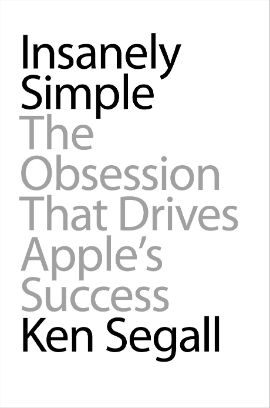
The small-group principle is deeply woven into the religion of simplicity. It’s key to Apple’s ongoing success and key to any organization that wants to nurture quality thinking. The idea is pretty basic: Everyone in the room should be there for a reason. There’s no such thing as a “mercy invitation.” Either you’re critical to the meeting or you’re not. It’s nothing personal, just business.
Steve Jobs actively resisted any behavior he believed representative of the way big companies think--even though Apple had been a big company for many years. He knew that small groups composed of the smartest and most creative people had propelled Apple to its amazing success, and he had no intention of ever changing that. When he called a meeting or reported to a meeting, his expectation was that everyone in the room would be an essential participant. Spectators were not welcome.
If big companies really feel compelled to put something on their walls, a better sign might read:
How to Have a Great Meeting
Throw out the least necessary person at the table.Walk out of this meeting if it lasts more than 30 minutes.Do something productive today to make up for the time you spent here.I’m exaggerating, of course. Meetings are a necessary and important way to make collaborative progress. But we all know that too many unnecessary or overpopulated meetings can rob even the most brilliant people of their creative energy.
Many businesses follow an instinctive but misguided principle: The more critical the project, the more people must be thrown at it. The operative theory is that more brains equal more ideas. That’s hard to argue with-- except that only occasionally do more brains mean better ideas.
The more people involved in the effort, the more complicated briefings become, the more hand-holding is required to get people up to speed, and the more time must be spent reviewing participants’ work and offering useful feedback. A smaller group offers the most efficient way to succeed--assuming that it also has the smarts.
When populated by the smartest people, small groups will give management more confidence, not less. Apple’s agency, originally known as Chiat/Day, succeeded by the same philosophy. The agency’s founder, the late Jay Chiat, had set a similar tone decades earlier. Jay and Steve had a unique relationship in the days of the original Macintosh and in certain ways were cut from the same cloth. I had the pleasure of being personally ejected from a meeting by Jay during one of my several stints at Chiat/Day. Surveying the room before the start of a meeting, Jay took one look at my art director partner and me and said, “What are you guys doing here?”
“Beats me,” I said. “We’re just responding to the invitation.”
“You shouldn’t be sitting around a table talking about this bullshit,” said Jay. “Go create something.” At least we got to walk out of the room with smiles on our faces.
The working styles of both Jay and Steve have stuck with me over the years. I can think of no better examples of leaders with a talent for keeping their teams focused on the mission and focused on producing great results. And both built spectacularly successful businesses. It’s not a coincidence.
To this day I have a recurring fantasy when I find myself trapped in a big meeting going nowhere. I imagine what Steve Jobs would say and do if he were sitting in that room, enduring what I’m enduring. Who would Steve verbally dismantle or eject from the meeting? When would he cut the presenter off midsentence and say it’s all bullshit? With all the talk about how rough Steve could be, it should be acknowledged that oftentimes he was only doing what many of us wish we could do. Steve saw no reason to be delicate when his time, and the time of everyone in the room, was being wasted.
This is part of the challenge that we non-Steves must face. Most of us aren’t comfortable with the idea of turning into coldhearted control freaks, but we also know that we sometimes need to be tough to keep projects on track.
The good news is, being brutal and being respected are not mutually exclusive. In fact, showing a little of that brutal honesty at the right time is a pretty good way to earn respect--and keep those smart groups small.
Excerpted from Insanely Simple: The Obsession That Drives Apple's Success by Ken Segall, by arrangement with Portfolio / Penguin, Copyright (c) Ken Segall, 2012.
[Image: Flickr user custer_flux]